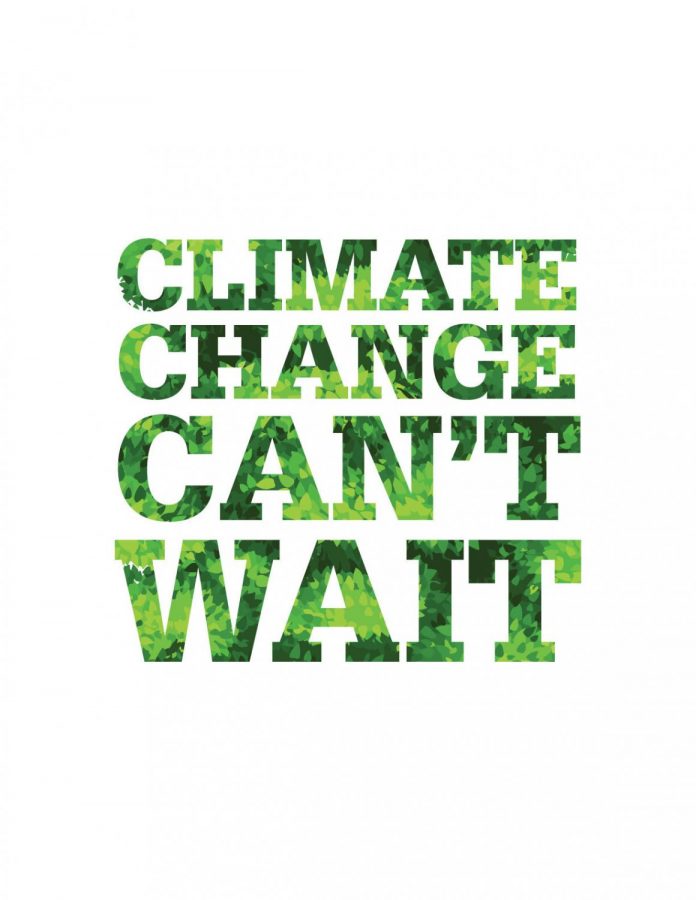Linnabary: We Can Decarbonize Globally Through a Carbon Embargo
Climate change is undoubtedly a global issue that will affect every nation. We already see the dramatic effects of climate change through increased wildfires, rising sea levels and a rise in the global average temperature. Climate change is an issue we all should solve. Unfortunately, this is not the reality.
China is responsible for 27% of global greenhouse emissions, more than double the United States. These emissions are only growing, as China emitted more than the entire developed world in 2019. Clearly, any global strategy that wants to take meaningful climate action needs to address China boldly. That is why placing a carbon embargo on Chinese goods should be at the forefront of our global decarbonization strategy.
A Carbon Embargo Is a Solution
A carbon embargo, as proposed by the Climate Leadership Council, would place a fee on incoming goods to the U.S. that would be paid by the exporting country. In this case, China would pay for the carbon emitted in the process of making these goods.
The embargo would ”cover energy and non-energy, direct CO2 emissions and indirect CO2 emissions associated with energy production and carbon-intensive intermediate goods.” As part of the larger Climate Leadership Council plan, the U.S. would implement a domestic price on carbon, and the carbon embargo “will be calculated by multiplying the emissions described above by the U.S. carbon price when a good is traded across the border.”
The experts say if we want to have any hope of stopping climate change, something must be done about China. China is responsible for over a quarter of total global emissions. Even if the entire globe stopped emitting CO2 right now and China continued, we would not make a significant enough change to stop many environmental disasters. But China doesn’t seem to care for the gravity of the situation and their role in it, so much so that they plan on growing their emissions until 2030, which is irresponsible and dangerous.
CO2 emissions are a negative externality in the production process with no immediate cost. The only cost is the ill effects of climate change. If we know one thing about China, we know that China will do what is best for China. Time and time again China has made it clear they will go to any length to grow their power, without consideration for others. Subsequently, when the price of making goods in a carbon-intensive way goes up, China will do what is in their best interest, and that is lower their emissions in the production process.
The U.S. Is Paving the Way
Still, other nations need to lower their emissions to fight climate change, and the U.S. should do its part in facilitating such decarbonization. Efforts by the United Nations and the World Bank, more specifically, to help less developed countries begin the decarbonization process should be celebrated.
The World Bank’s low-interest loans have helped facilitate the building of sustainable technology in disadvantaged countries all over the globe. And, as the primary financer of the United Nations, the U.S. has and will continue to play a significant role in global decarbonization. But China should not be afforded this type of outreach. Given China’s massive human rights violations, we should not be financing any sort of economic or energy development in a country as morally bankrupt as China and the Chinese Communist Party. The carbon embargo will force China, a wealthy nation, to finance this transition.
While China’s per capita emissions are significantly lower than the U.S., this won’t matter when our coasts are underwater, and our forests are burning. Climate change will affect all of us. Some would suggest that the U.S. is the issue and hinders the fight against climate change. But what many like to forget is that the U.S. has taken bold action to reduce its carbon footprint, reducing our emissions at the fastest rate globally.
The U.S. has been able to get our emissions under control because we are a prosperous nation that wants to fight climate change. Other countries are not as financially fortunate as us, and the U.S. should continue to help facilitate decarbonization in other nations. But that type of help shouldn’t be afforded to China. If China wanted to, they could begin the decarbonization process today. Unfortunately, they are choosing to pollute until 2030 and beyond. We need a carbon embargo to force China’s hand.
Response to Will Shadley
Saying that China’s rise in emissions is aimed at improving the lives of their population lacks nuance. In pursuit of replacing the U.S. as the only global superpower, China has exploited its population repeatedly. They are engaging in forced labor practices that don’t respect individuals. To put it in clear terms, China isn’t increasing its reliance on fossil fuels to improve the standard of living for its population. They simply want to grow their production capacity in the cheapest way possible.
Furthermore, this conversation should center around China, the nation responsible for over a quarter of current global emissions, and soon more. This point isn’t to discount the importance of historical emissions, but we can only control current emissions, not the past. Our strategy against climate change shouldn’t be based solely on the past but on what we can do today to subvert this crisis.
As previously stated, China is a wealthy nation that can finance a transition to sustainable energy today if they so choose. In fact, they have already begun to exert dominance in the industry to compete with the U.S. Let’s continue to assist allied developing nations in this effort, but not China.

Shadley: A Carbon Embargo Misplaces Responsibility and Fails to Facilitate Decarbonization
The burning of fossil fuels, like coal, oil and natural gas, is the primary reason for anthropogenic climate change. It’s also been the best way to rapidly grow an economy. It’s no surprise that wealthy nations are responsible for half of all the greenhouse gas emissions since the industrial revolution. Rich countries, including the United States, Canada, Japan and most of Europe, make up only 12% of the world population. The U.S. has the most disproportionate historical emissions, with roughly 25% of all greenhouse gas emissions. The next highest historical emitter, China, is responsible for only 14% of historical emissions, despite their population quadrupling ours. As we look to mitigate and adapt to global climate change, how can the U.S. take accountability for our actions and facilitate global decarbonization?
Burning Fossil Fuels Leads to Less Poverty
Large developing countries, like India, that have historically not been significant contributors to the climate crisis are looking to increase the quality of life for their citizens. The World Bank defines international poverty as less than $1.90 per day. In the U.S., the poverty level for a single person is roughly $35.29 per day. Yet, the most feasible, available method for lifting people out of poverty for developing countries is to increase their reliance on fossil fuels. That leaves them with two options: continue having most of their population live in abject poverty or exponentially increase their greenhouse gas emissions.
In 1990, more than 750 million people in China were living below the international poverty line. And in 2012, that number had shrunk to only 90 million people. However, China’s greenhouse gas emissions have roughly tripled over that time, and they now emit more carbon than any other country in the world. Doing so has lifted many people out of life-threatening poverty, and that’s something we should celebrate. The more people who get to live a dignified, fulfilling life, the better.
Two difficult problems arise as we look to lift more people out of poverty across the world. First, China’s greenhouse gas emissions are the highest in the world, but their per-capita emissions are still dwarfed by most western nations. If China looks to lift more people above our poverty level, they’re going to have to burn a lot more fossil fuels to do so. Suggesting that China be held accountable to standards that no western country could meet is deeply problematic. Second, there are several other large developing countries, like India, Pakistan, Indonesia and Brazil, who will hopefully lift as many of their citizens out of poverty as China has. However, they don’t have the financial resources to do so with renewable energy sources, they must rely on fossil fuels for that transformation.
Why a Carbon Embargo Won’t Work
One proposition, the Baker-Schultz Plan, suggests that we should place a carbon embargo on our trade partners. Doing so would impose a tax on all imports that come from other countries that did not price carbon. A carbon embargo would ask developing nations to foot the bill to either decarbonize their economy or pay the U.S. for the privilege to emit carbon. Either way, their economies would be damaged, and more people would continue to live in undignified poverty for longer. And if they simply pay the tax, functionally no decrease in carbon emissions will occur, only a transfer of wealth from developing countries to the U.S.
A carbon embargo grossly misrepresents who bears responsibility for the climate crisis. Imposing a tax on countries that already do not have the funds to decarbonize or adapt to climate change will strip them of any chance they had at doing so. On top of that, the Baker-Schultz Plan includes reimbursements for American companies on carbon taxes, allowing them to continue relying on fossil fuels. It’s not a real plan to deal with the climate crisis, it’s the same attempt to steal wealth from developing countries that wealthy nations have always engaged in.
But, developing countries desperately want to decarbonize. India has asked the rich world to support them in producing a more renewable energy grid, but so far, no one has stepped up. India, and many other countries that make up the global South, recognize that they will be disproportionately affected by a crisis that they barely contributed to. Wealthy nations that have massively contributed to the climate crisis must fund climate adaptation and climate mitigation in other countries. Isolating ourselves from the world and trying to strong-arm them will only result in our mutually assured destruction.
Response to Ian Linnabary
There are absolutely disgusting human rights violations occurring in China, as there are in America, and most industrialized nations. Any country with an economic system that values profit and wealth accumulation over its people will inevitably lead to the exploitation of workers. And that same economic system allows for the exploitation of our planet as well. Perhaps the problem is not carbon emissions, but the economic system that allows for the exploitation of labor and resources. Just a thought.
Regardless, all a carbon embargo on China does is allow U.S. companies to continue emitting carbon during their manufacturing processes, so long as they do so in a country other than China. And if they manufacture those products in the U.S., China will pay for their privilege to emit. If we really cared about reducing emissions, we would require U.S. companies to minimize their carbon emissions during manufacturing. If they want to continue manufacturing overseas, they should be responsible for ensuring that the manufacturer they work with has the resources to transition to green energy.
While the U.S. and other developed countries have contributed some money to developing nations looking to shift to clean energy, they’ve come up laughably short. If we don’t take accountability for our actions, more and more countries will use fossil fuels to develop as China has. A carbon embargo doesn’t just absolve the U.S. from responsibility, it blames developing countries — something we shouldn’t accept.


